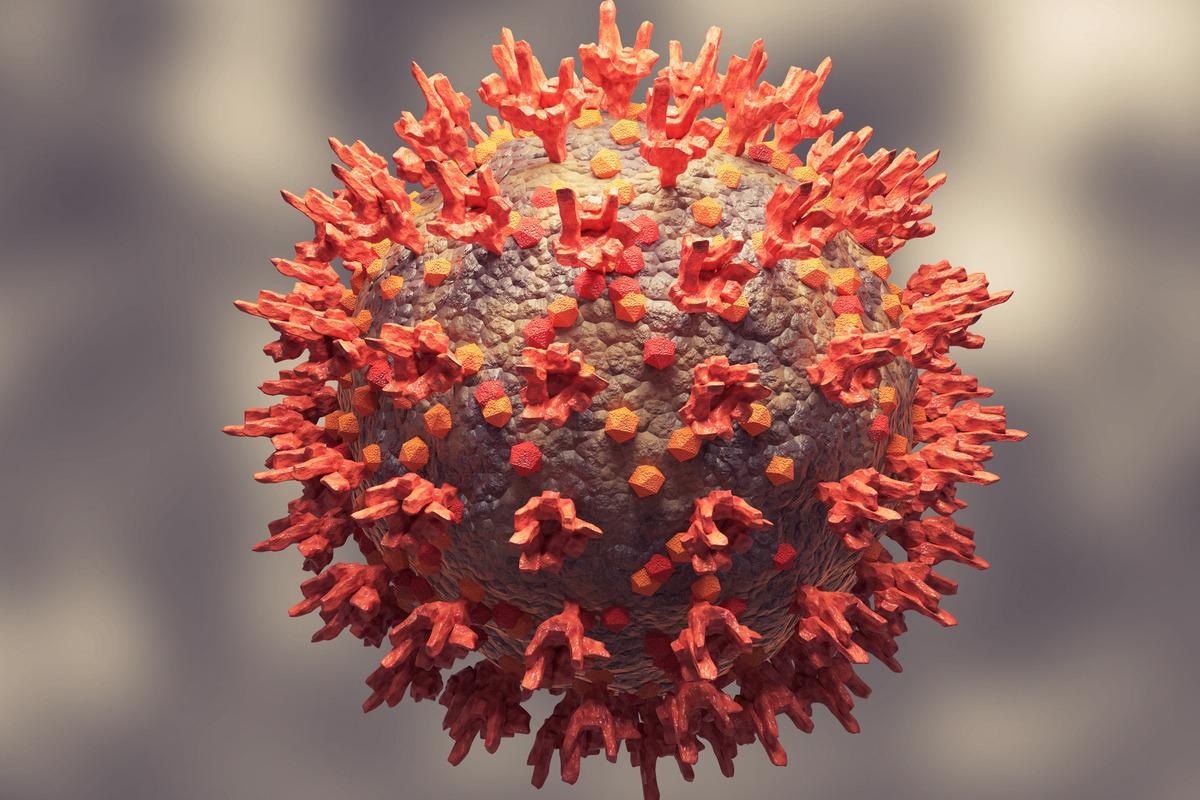
A team of researchers recently studied the immune response of hosts in vaccine-breakthrough infections and posted their findings to the bioRxiv* preprint server.
The massive surge in coronavirus disease-2019 (COVID-19) infections across the globe due to the new severe acute respiratory syndrome coronavirus-2 (SARS-CoV-2) Omicron variant (B.1.1.529) has resulted in a new health crisis. The Omicron variant is highly transmissible due to immune evasive characteristics which have led to Omicron replacing the other variants of concern (VOCs) such as the Delta variant in several African and European countries. The neutralizing antibodies (NAbs) elicited by vaccines or passive antibody therapies have been found to have diminished neutralizing ability against the Omicron variant.
 Study: Vaccine-breakthrough infection by the SARS-CoV-2 Omicron variant elicits broadly cross-reactive immune responses. Image Credit: Adao/Shutterstock
Study: Vaccine-breakthrough infection by the SARS-CoV-2 Omicron variant elicits broadly cross-reactive immune responses. Image Credit: Adao/Shutterstock
Global vaccinations have exceeded 8.9 billion doses and have helped lower the rates of hospitalization and deaths. Despite the high vaccination rate, vaccine-breakthrough infections, as well as re-infections, have been recorded in many countries as vaccines do not offer complete protection against SARS-CoV-2 infection in the upper respiratory tracts, and it is unknown if Omicron infection could trigger the vaccine-induced immune memory.
The study
In the present study, researchers analyzed the host immune responses in the first vaccine-breakthrough cases. Genomic sequencing confirmed the presence of the Omicron variant in two fully vaccinated travelers who tested positive after arrival in China.
In the first case, the vaccine-breakthrough case was noted 178 days after receiving the second dose of the BNT162b2 vaccine while the second one reported the breakthrough infection after 53 days of receiving the second mRNA-1273 vaccine dose. The patients presented with mild symptoms when hospitalized and did not require oxygen supplementation or ICU treatment. The authors collected their sera and peripheral blood mononuclear cells (PBMCs) samples to ascertain whether the Omicron infection could elicit vaccine-induced memory.
Findings
The authors measured NAb titer (IC50) in the breakthrough cases against all SARS-CoV-2 VOCs and compared the IC50 titers in about 34 locals who received the BNT162b2 vaccine. The team recorded a high (5.9-fold) resistance in Omicron infections to the BNT162b2 vaccine-induced immunity. It was observed that the breakthrough infections caused by the B.1.1.529 variant could elicit cross-reactive broad NAbs (bNAbs). Similar bNAbs were reported for breakthrough infections caused by other VOCs. The IC50 values were 121.41- and 74.89-fold higher against the Beta and Omicron variants in patient one compared to those in BNT162b2 vaccinees.
The team conducted flow cytometric analysis on PBMCs in both the patients and observed no sign of severe immune suppression. Both of them reported similar T lymphocyte counts without lymphocytopenia and had normal myeloid-derived suppressor cells (MDSCs), and a stable conventional dendritic cell (cDC): plasmacytoid dendritic cell (pDC) ratio.
They quantified the frequency of spike-specific IgG+ B lymphocytes for antigen-specific B cell activation and noted relatively high levels in both patients than those in the BNT162b2 vaccinees. Further, cross-reactive T lymphocyte responses against spike and nucleocapsid (NP) peptides obtained from the wildtype SARS-CoV-2 were measured and compared with BNT162b2 vaccine recipients. The findings revealed an increase in spike- and NP-specific interferon-γ responses in both CD4 and CD8 T cells and noted that the T cell response was primarily spike-specific.
Conclusions
The study included a very small number of vaccine-breakthrough infections detected in Hong Kong which is a limiting factor. The Omicron variant shares a few mutations with other VOCs and particularly the E484K mutation (characteristic of the Beta variant). Several reports indicated that E484K substitution confers resistance to the Beta variant against many NAbs under development. The high number of spike mutations in combination with other pre-existing substitutions might be responsible for the potent antibody evasion by the Omicron variant. A higher bNAb response in both patients part of the study compared to BNT162b2 recipients at their peak performance suggested that Omicron infection could draw vaccine-induced immune responses during the acute phase of infection. Further, cross-reactive T cell responses were also detected against both spike- and NP-specific peptides of wildtype SARS-CoV-2, which could have imparted protection and probably could be the reason why both the patients presented with mild clinical symptoms.
In conclusion, the present research revealed that vaccine-breakthrough infections might elicit cross-reactive bNAbs against all VOCs. The study findings could aid the development of the Omicron-targeted vaccine and boost the immune responses against SARS-CoV-2 VOC infection. The present (preliminary) investigation could help optimize vaccine booster strategy for effective pandemic control and possibly newer outbreaks.
*Important notice
bioRxiv publishes preliminary scientific reports that are not peer-reviewed and, therefore, should not be regarded as conclusive, guide clinical practice/health-related behavior, or treated as established information.
Runhong Zhou, et al. (2021). Vaccine-breakthrough infection by the SARS-CoV-2 Omicron variant elicits broadly cross-reactive immune responses. bioRxiv. Doi: https://doi.org/10.1101/2021.12.27.474218 https://www.biorxiv.org/content/10.1101/2021.12.27.474218v1
Posted in: Medical Science News | Medical Research News | Disease/Infection News
Tags: Antibodies, Antibody, Antigen, B Cell, Blood, CD4, Cell, Coronavirus, Coronavirus Disease COVID-19, Cytometric Analysis, Dendritic Cell, Frequency, Genomic, Genomic Sequencing, Immune Response, immunity, Interferon, Lymphocyte, Mutation, Oxygen, Pandemic, Peptides, Research, Respiratory, SARS, SARS-CoV-2, Severe Acute Respiratory, Severe Acute Respiratory Syndrome, Syndrome, T Lymphocyte, Vaccine

Written by
Tarun Sai Lomte
Tarun is a writer based in Hyderabad, India. He has a Master’s degree in Biotechnology from the University of Hyderabad and is enthusiastic about scientific research. He enjoys reading research papers and literature reviews and is passionate about writing.
Source: Read Full Article